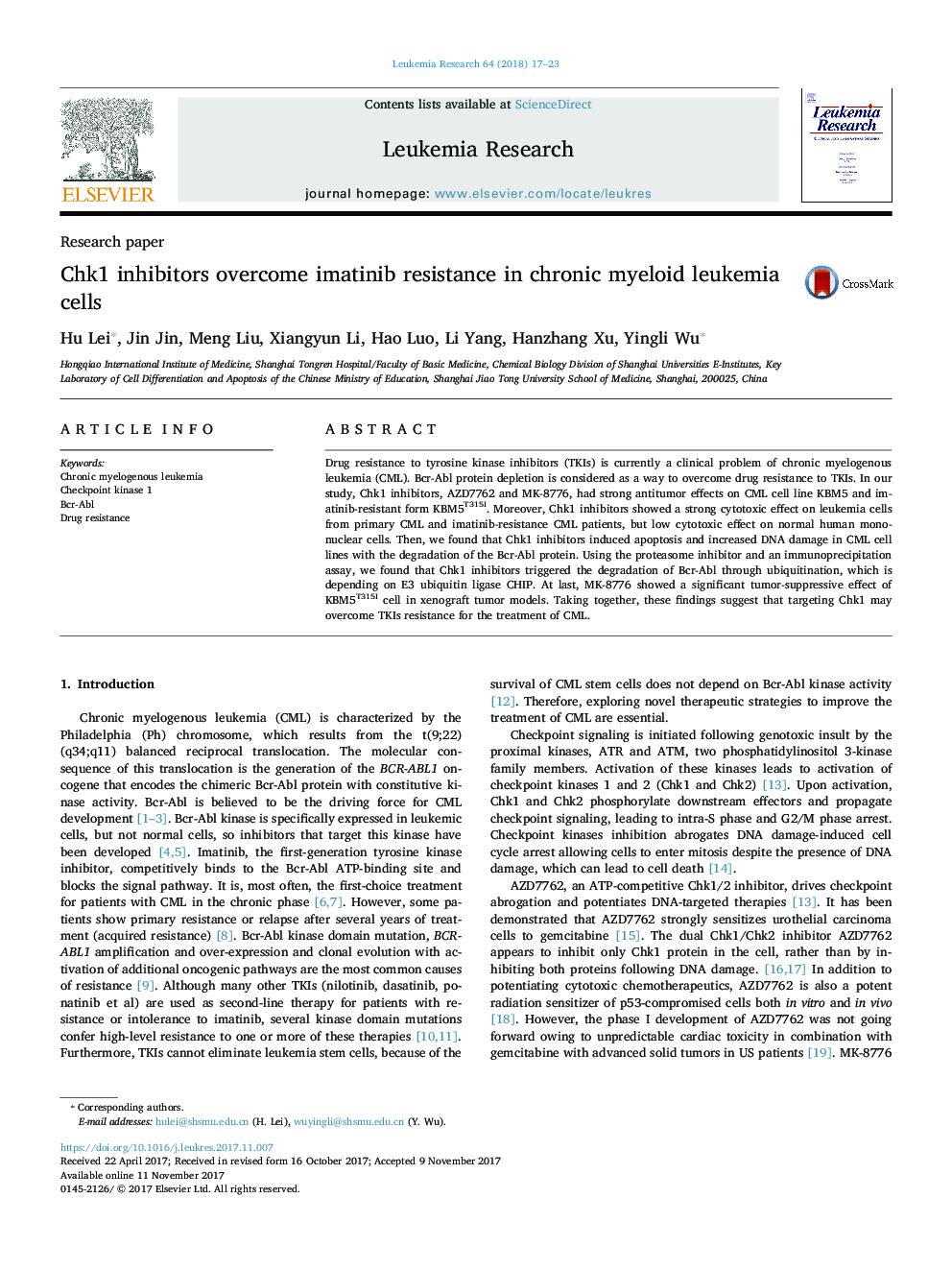| Article ID | Journal | Published Year | Pages | File Type |
|---|---|---|---|---|
| 8453406 | Leukemia Research | 2018 | 7 Pages |
Abstract
Drug resistance to tyrosine kinase inhibitors (TKIs) is currently a clinical problem of chronic myelogenous leukemia (CML). Bcr-Abl protein depletion is considered as a way to overcome drug resistance to TKIs. In our study, Chk1 inhibitors, AZD7762 and MK-8776, had strong antitumor effects on CML cell line KBM5 and imatinib-resistant form KBM5T315I. Moreover, Chk1 inhibitors showed a strong cytotoxic effect on leukemia cells from primary CML and imatinib-resistance CML patients, but low cytotoxic effect on normal human mononuclear cells. Then, we found that Chk1 inhibitors induced apoptosis and increased DNA damage in CML cell lines with the degradation of the Bcr-Abl protein. Using the proteasome inhibitor and an immunoprecipitation assay, we found that Chk1 inhibitors triggered the degradation of Bcr-Abl through ubiquitination, which is depending on E3 ubiquitin ligase CHIP. At last, MK-8776 showed a significant tumor-suppressive effect of KBM5T315I cell in xenograft tumor models. Taking together, these findings suggest that targeting Chk1 may overcome TKIs resistance for the treatment of CML.
Related Topics
Life Sciences
Biochemistry, Genetics and Molecular Biology
Cancer Research
Authors
Hu Lei, Jin Jin, Meng Liu, Xiangyun Li, Hao Luo, Li Yang, Hanzhang Xu, Yingli Wu,
